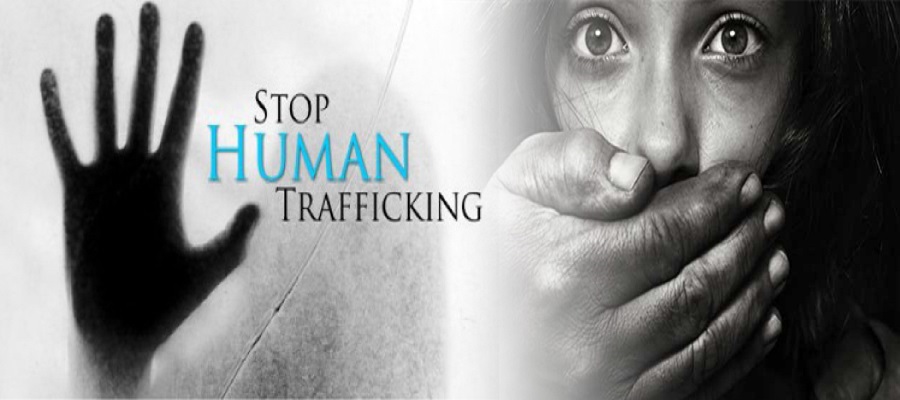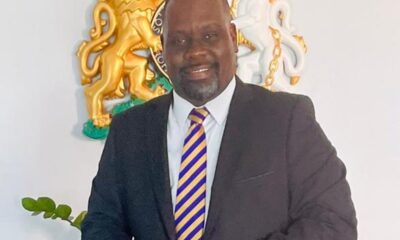Jamaica, March 30, 2018 – Kingston – Minister of National Security, Hon. Dr. Horace Chang, is calling on Jamaicans to reject all forms of human trafficking, while reiterating the Government’s commitment to stamping out this heinous activity.
“We stand united as political leaders in Parliament. We reject (and) condemn such activity. We will take every step and every action we possibly can as a Government and as a Parliament, to find the means to ensure we can rid our society of this horrible and despicable crime,” he said.
The Minister was addressing the launch of the Jamaica-United Nations (UN) Blue Heart Campaign at Emancipation Park in New Kingston on Wednesday (March 28).
Dr. Chang said it is disappointing that so many Jamaicans “could have the kind of heartlessness and cruelty to indulge in this kind of criminal activity,” stressing that every Jamaican who is associated with human trafficking should not only be held for their criminal action, “but everyone who knows one and does not report it, should hang their head in shame”.
“It is something that as a society, we need to take a clear and definitive stand against and to be prepared to get that information to the police, to the security forces wherever possible, and in our whole action to take strong steps in dissuading anyone from even being mildly associated or condoning such actions,” he emphasised.

The Minister pleaded with persons who are aware of this “most despicable and reprehensible crime,” to speak out and help to put a stop to it.
“There are citizens out there who must be aware of the venues where human beings are literally auctioned and advertised; you know the venues where businessmen are brought to observe young girls,” he said, noting that there are some who even assist these traffickers by recruiting victims, for a profit.
In the meantime, Regional Representative, UN Office on Drugs and Crime (UNODC), Regional Office for Central America and the Caribbean, Jose Vila Del Castillo, commended Jamaica in joining the campaign which is gradually becoming a global movement, noting that the launch represents the leadership of Jamaica in the fight against this crime.
For Minister of Justice, Hon. Delroy Chuck, the event was a shining testament to the Government’s long-standing commitment to give its citizens “a life of freedom, the protection of this freedom, and the right to justice wherever that freedom is breached.”
In her remarks, Permanent Secretary in the Justice Ministry, and Chair, National Task Force Against Trafficking In Persons (NATFATIP) Carol Palmer, noted that there is an inescapable obligation on the part of Governments to “place themselves on the right side of history in the struggle against modern slavery,” noting that inaction means complicity and “our collective silence provides a fertile ground for human trafficking to thrive.”

She stressed that in joining the campaign, Jamaica is taking its stand in the global arena to end enslavement and the horrors associated with human trafficking, adding that an estimated 45.8 million human beings are victims of modern slavery.
Jamaica is the first Caribbean island to formally adopt the Blue Heart Campaign which is a global awareness initiative by UNODC to fight human trafficking and its impact on society. The campaign seeks to encourage involvement and inspire action to help stop the crime. Countries all over the world have adopted the campaign, including Brazil, Colombia, Lebanon, Mexico and Switzerland.
In addition to the grand launch at Emancipation Park, where Dr. Chang read the declaration signifying Jamaica’s formal adoption of the campaign, similar activities also took place at St. William Grant Park, downtown Kingston and Rudolph Elder Park in St. Thomas. The highlight of the launch was the simultaneous symbolic turning on of blue lights at all three locations at 6:00 p.m.
The launch was organised by NATFATIP, which is a multi-agency body, comprising representatives from Ministries, Departments and Agencies and non-governmental organisations, which support the Government’s policy and action in combating human trafficking in Jamaica.
Human trafficking is considered a transnational crime with the primary objective of gaining profit through the exploitation of human beings.


 News1 week ago
News1 week ago
 Caribbean News1 week ago
Caribbean News1 week ago
 News1 week ago
News1 week ago
 News6 days ago
News6 days ago
 News6 days ago
News6 days ago
 News17 hours ago
News17 hours ago













